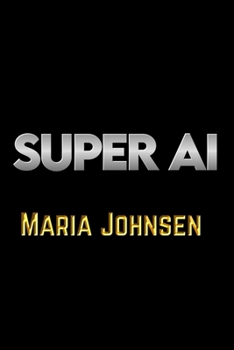Super AI
Some people are overly focused on the present reality of AI. But my book is about exploring what could be like.
While we're still some years away from achieving AGI, the future of AI is incredibly promising. Advanced AI systems are already pushing the boundaries of what AI can do in specific domains, and breakthroughs in reinforcement learning, hybrid AI, and neuroscience-inspired systems are bringing us closer to creating a more general intelligence.
The next phase of AI development will likely involve creating systems that can better generalize across tasks, exhibit some form of reasoning, and interact with the world in more human-like ways. Alongside this technical progress, we must also continue to explore the ethical implications and establish frameworks to ensure that this powerful technology is used for good.
The journey to Super AI is just beginning. While we have a long road ahead, every new development brings us one step closer to understanding and creating intelligent systems that can think and reason across a wide range of tasks. But it's up to us to ensure that this future is one where AI works in harmony with humanity, rather than against it.
Understanding Super AI and Its EvolutionWhat is Super AI, and how does it differ from current AI technologies?How has artificial intelligence evolved from narrow applications to the concept of superintelligence?What are the key traits and capabilities of Super AI, and how do they compare to human intelligence?What philosophical foundations are necessary for understanding the development of Super AI?Technological Foundations of Super AIHow do deep learning, neural networks, natural language processing, and computer vision enable machines to interact with the world?What role do robotics, autonomous systems, and quantum computing play in advancing Super AI?Challenges in Developing Super AIWhat are the major challenges in developing Super AI, such as alignment, control, and ethical concerns?How do we balance the benefits of Super AI with the risks of potential misuse or unintended consequences?What ethical considerations should guide the development and implementation of Super AI across different industries?Societal and Economic ImpactsHow could Super AI impact society in terms of economic disruptions, workforce changes, and privacy issues?How can society prepare for economic challenges as automation and AI continue to advance?What specialized skills will humans need to develop in a world where robots increasingly replace human labor?How can the algorithms behind Super AI be used to promote wealth distribution and create new job opportunities?Governance, Policy, and Global CompetitionWhat political challenges arise in governing Super AI and ensuring it benefits humanity?What steps can be taken to ensure that Super AI is developed and used in a way that benefits all of humanity?How could Super AI revolutionize sectors like healthcare, social good, and global competition?Existential and Philosophical QuestionsWhat existential questions does Super AI raise about humanity's future in a world where machines could surpass human intelligence?What is the concept of the technological singularity, and how might it affect human society?What does the future of meaning and purpose look like in an AI-driven world?Could Super AI lead to a utopian or dystopian future, and what factors influence this outcome?Get your Copy




